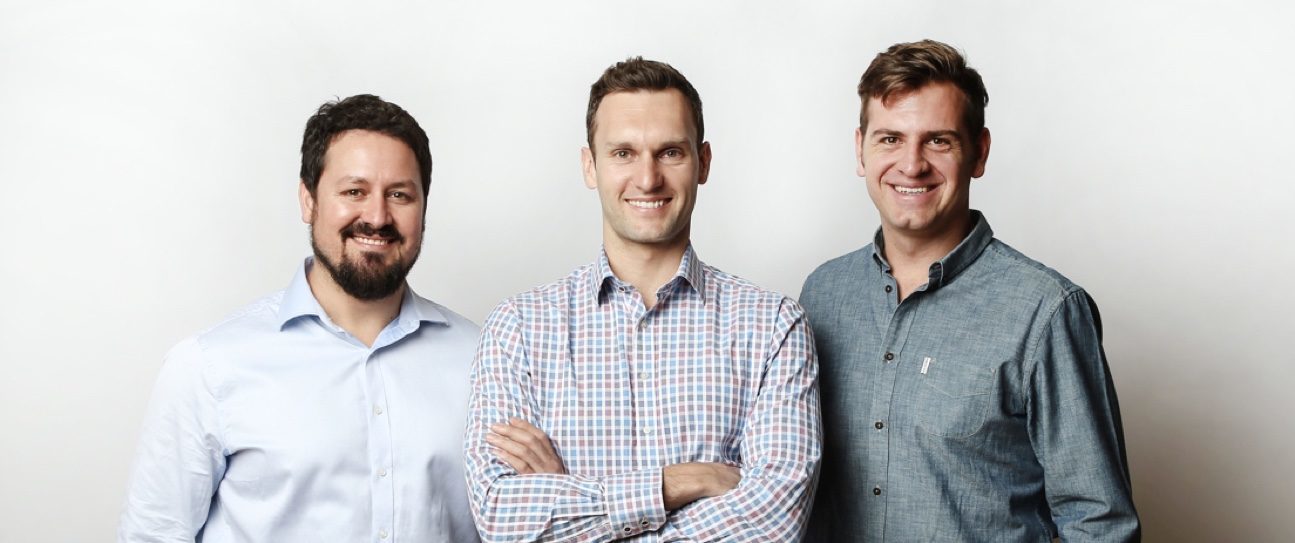Like any great whodunit, two separate stories lead to the business which now operates as Webfluential.
Like any great whodunit, two separate stories lead to the business which now operates as Webfluential.
In 2003, in the University of Pretoria hostel of Kollegetehuis, David and Murray first met. They were both studying engineering, became friends and shared a digs together. To earn extra money, they tutored school children and made calls on behalf of estate agents. Having an interest in computer programming, they decided to start an online tutoring business together which eventually became Penguin Tutoring. More than just the lessons of management of income and marketing, they were fascinated by the data driven approach to running the business. Microsoft Access lead to an understanding of databasing and eventually an appreciation for development and David learning PHP. Although failing at understanding working capital and customer support, they learnt early lessons in marketplace platform theory and the limitless opportunities of technology.
David moved into a role at the Global Campaign for Education and Murray followed a biomedical engineering path and then into investment banking. They remained close friends and always talked about the next business opportunity that involved technology development that would one day present itself.
Mike Sharman studied a degree in journalism, worked in PR and gained international experience in London working on global brands like LG, that in 2008 and 2009 were moving towards digital and social means of engagement. In 2010, Mike and Murray started Retroviral, a digital content business founded on the principle that remarkable content, seeded to the right influencers, driving results. Retroviral grew in stature and earned credibility in the South African market, working with clients such as Ford, Nandos, FNB, Douwe Egberts and SAB Miller. In 2015, Bidvest, a multinational industrial holding company purchased a majority stake in the business, which Mike still runs.
The concept of Webfluential was formed in early 2013. Murray proposed the idea to Mike that brands were starting to make use of bloggers as media channels to reach audiences, and that there was scope for a platform to allow bloggers to meet marketers. The domain bloggertising.co.za was registered. By August, the concept had evolved into the principal that influence, rather than blogging, was at the core of the business, and Webfluential was born.
David and Murray looked into the analytics and statistics that could be extracted from social media and native channels and looked at how influence could be measured. They agreed on three metrics - reach, relevance and resonance. Combining relevance and resonance, one could look at an impact factor within a set audience size. The algorithms were constructed and tested empirically until a rational set of equations were derived. This also allowed the team to overlay influence and costing to calculate a guidance for influencers on what a market related fee could be - a process that would one day become a differentiator for the business. Thereafter, a platform structure was designed and built as a minimum viable product. Lady Gaga and Will.I.Am graced the front page and a fairly basic but functional back end allowed influencers to add the social channels through API authentication and marketers could search for and build campaigns.
Webfluential held a press evening in January 2014 to launch the business to influencers and keep marketers up to speed with the new business that could help solve their content dissemination needs. At the time, David left his job at Global Campaign for Education and Murray his at Rand Merchant Bank to work on the business full time.
By August, the business came out of Beta to trade as Webfluential.com through the successful purchasing of the domain and the release of an upgraded platform through the Mauritian holding company in May. A collective audience of 25 million people to market to through the library of influencers, a sales partnership with Naspers’ owned The Space Station and a newly appointed startup CEO - Steven Murray were all milestones that had been reached. To test the mettle of the business, Steve and the founders travelled to New York to engage with leading content agencies to discuss their views on the business concept. At the time, it was well received as a novel business, but the team soon realised that the lack of US influencers and reporting would be a challenge in tackling that market.
In November of 2014, with eyes set on global markets, an office was set up as a base in Shoreditch inside the Google Campus. Late nights and down time over December allowed for a focus on completing the loop of reporting. Now the business could procure native media channels (influencers), execute large scales campaigns, and then provide a single report detailing traffic flow, combined engagements and more.
Webfluential was growing its base of technology and increasing its share of influencers but as any good marketplace will tell you – it’s important to level the supply with the demand. In order to accelerate the growth of Webfluential the founders had been working with a key partner in the media industry, Retromedia.
Retromedia was lead by Kirsty Sharman, often referred to as bottled lightning and a key personality in the evolution of the Webfluential business. Kirsty gained exposure on working with bloggers as the first employee of Retroviral but ended up continuing down a path of online media – launching one of the first online media buying businesses in South Africa, as a spin off from Retroviral.
Working across all online media channels Kirsty started to experiment with Online Influencers as the key element to brands content dissemination efforts. The working relationship between Retromedia and Webfluential South Africa provided the right setting to merge the businesses and bring Kirsty in as a strategic shareholder. She has since gone on to prove the recipe of influencer posts and paid media, and in 2015 held the reins as CEO of the South African business, working closely with Murray Legg to build the global blueprint.
Webfluential South Africa opened a Cape Town office in September 2015 and started moving into the UK market aggressively. With the operational team growing to over 20 staff, the Johannesburg hub moved to new premises in the heart of Sandton and designed its millennial style offices to attract Africa’s hottest technology talent.



